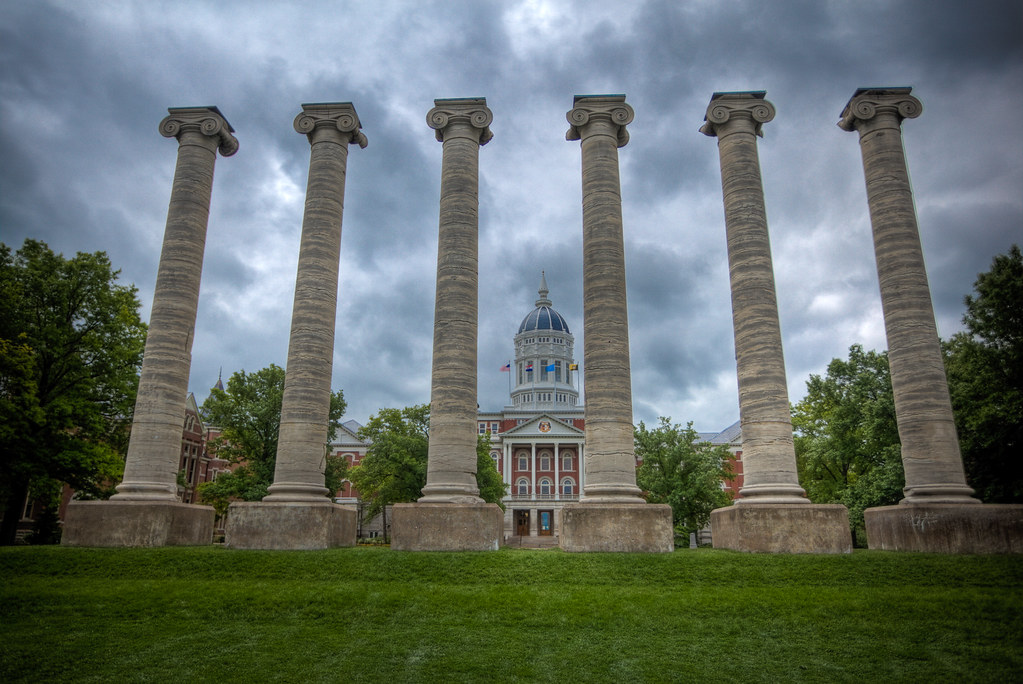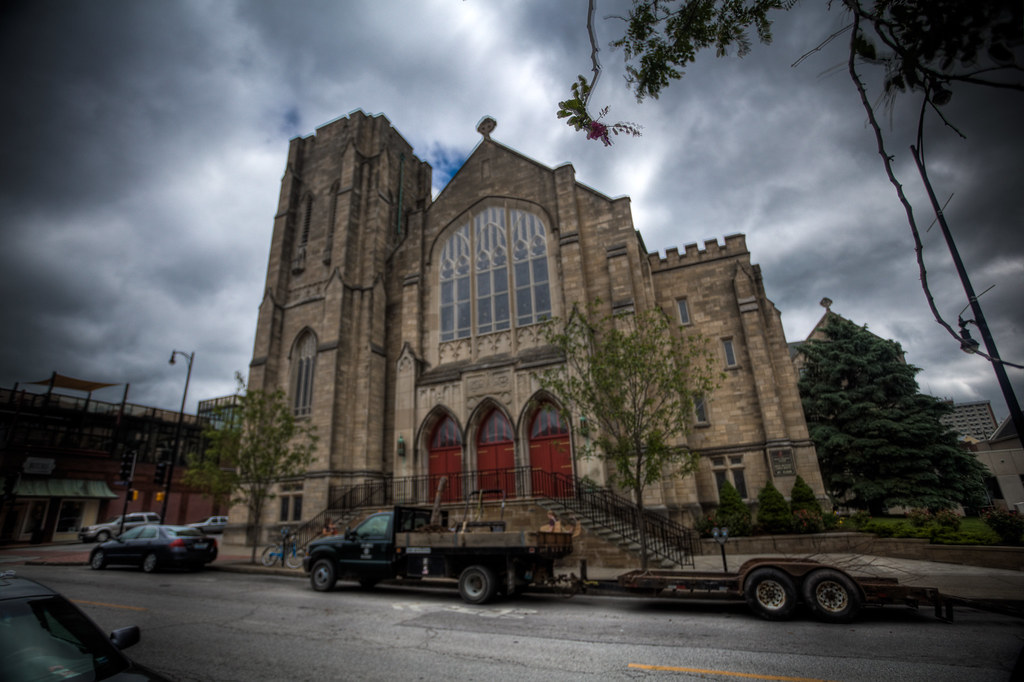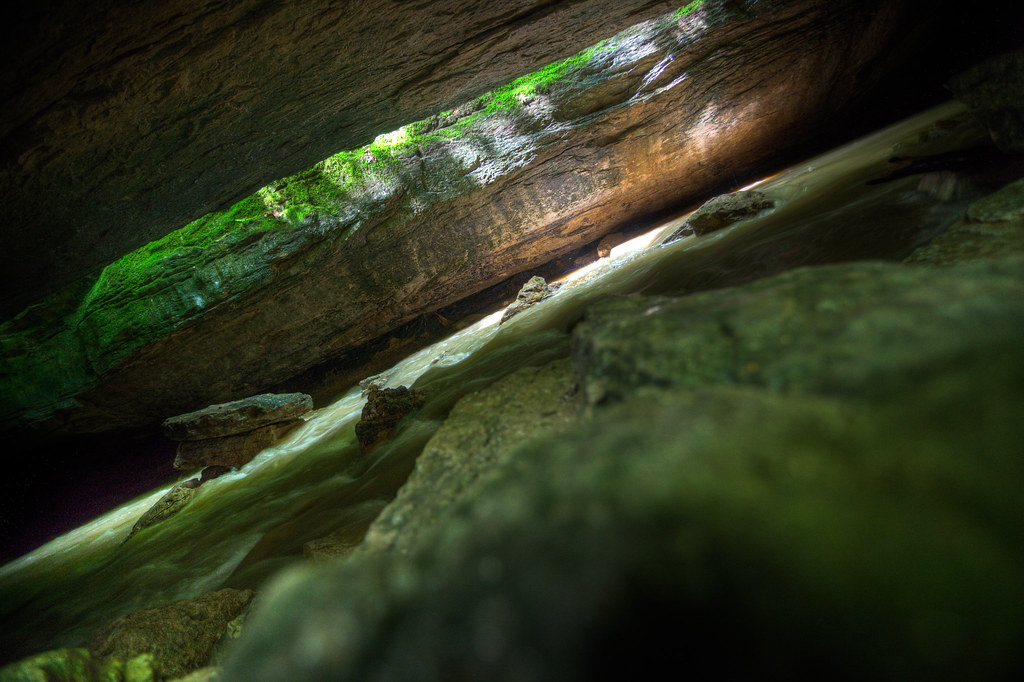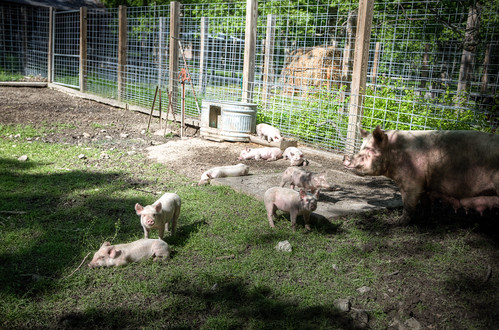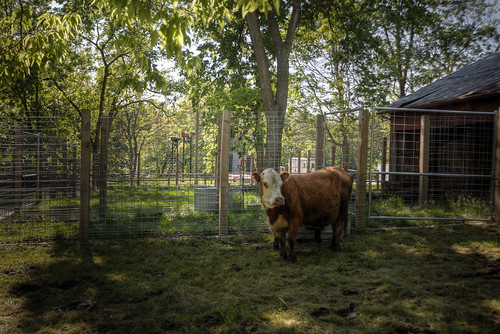Zane’s was the only stop where I stayed somewhere for a full-on two days which helped to improve the pacing going forward. The beginning of my big adventure in Columbia was walking about the “downtown” populated by pseudo-Indie stores book-ended by various restaurants. As with many college towns, many things had the school name or mascot in them in this case “tiger” and “Mizzou” respectively leading to a wonderful spin on easy college girls, sorostitutes, to become tiger-tutes or Mizzou-itutes. The college itself was well-kept and the overcast day allowed for many overdramatic tonemapped shots.
But for dark and foreboding, I think the overcast of the many churches won.
After the walk-about we met up with Jessica and launched what turned out to be a 45 minute quest for lunch followed by not one but two parks. The first, Devil’s Icebox, was largely flooded by water, school children, and creepy midwestern folk which luckily didn’t interrupt the lighting of a the mini-cave.
This wonder was eclipsed by the rare occurrence of Zane smiling.
This park was followed up with a “jackhammer”, which is a very hard custard (concrete) served around a core of some preferred ingredient, in my case hot fudge. This powered us to the second park which hosted eerily unwatched farm animals and a historic building/museum complex that was closed on Tuesdays. But again, there were animals.
We retired to the apartment where the evening’s entertainment was watching Hot Fuzz and learning about the bewildering array of piano tuning tools which includes adamantium-plated wire cutters and a Japanese felt blade that has been used since the time of the Fujiwara Shogunate. Zane explained to me that the most piano tuning involves setting a key range and then tuning everything to that range which seemed utterly alien to me as all my instrument tuning involved exactly tuning one slide or four strings to precise pitches. Despite the phenomenon of inharmonicity it still seems like one could create an special tuning device where one could generate a subjectively perfect tone profile over the range of the piano and have a spot-on experience each time. In the war between “it’s an art” vs. “it’s a science” I will almost always root for the latter. But in this case I bowed to the idea that piano players are a strange and alien people and they can do whatever they wish to their chord boxes.
